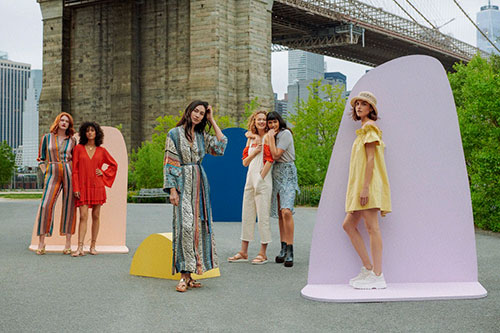"A pioneer of rental fashion is Rent the Runway- the first American company that started offering subscription-based fashion services in 2009. In a short time, the company grew rapidly by catering to the growing needs of a new consumer segment. It is currently valued at about $800 million and offers everything from eCommerce apparels to high-end, luxury clothing"
 Just as companies like Lyft, Uber and Airbnb have popularised the concept of car rentals across the world, the concept of rentable fashion is also becoming popular in the apparel market. The CGS 2019 Future of Fashion & Retail Consumer Survey notes, around 72 per cent of global consumers today prefer to rent their clothes rather buying them. They are even willing to pay $50 or more to rent apparels on a monthly basis. This rising affinity for apparel renting has broadened consumer’s access to clothes that earlier faced limited choices.
Just as companies like Lyft, Uber and Airbnb have popularised the concept of car rentals across the world, the concept of rentable fashion is also becoming popular in the apparel market. The CGS 2019 Future of Fashion & Retail Consumer Survey notes, around 72 per cent of global consumers today prefer to rent their clothes rather buying them. They are even willing to pay $50 or more to rent apparels on a monthly basis. This rising affinity for apparel renting has broadened consumer’s access to clothes that earlier faced limited choices.
Other reasons that have lead to a rise in rental fashion include increase in the number of formal occasions such as weddings or black-tie events, an opportunity to explore new trends and accessibility luxury or premium brands that would be otherwise be inaccessible. A recent research from Nottingham Trent University reveals, subscription and rental businesses work exceptionally well for such occasions as most consumers still spend on a few staple items instead of exploring the fast fashion trend.
Pioneers of rental fashion
The traditional fashion and apparel industry segregated consumer segments based on their economic status. However, the sharing economy blurs these lines by attracting a variety of customer profiles. It enables middle-income consumers to indulge themselves and satisfy their gratification for luxury goods. These consumers can now own high-end couture either for a special occasion or for even weeks of months. 
A pioneer of rental fashion is Rent the Runway- the first American company that started offering subscription-based fashion services in 2009. In a short time, the company grew rapidly by catering to the growing needs of a new consumer segment. It is currently valued at about $800 million and offers everything from eCommerce apparels to high-end, luxury clothing. Other companies like Le Tote, Gwynnie Bee, Tulerie and Armoire too have jumped on the rental bandwagon, though with a slightly different philosophy.
For instance, Tulerie allows users to rent clothes, shoes and accessories amongst themselves through an app. The company first interviews its prospective participants and then allows them to list products from a predetermined designer list. This list includes established brands such as Gucci, Prada, Louis Vuitton, and upcoming trendy brands like Monse, Tibi and Zimmerman.
The advantages of such subscription-based services extend beyond cost. They enable consumers to express greater individualism and explore emerging non-commercial trends. This leads to enhanced support and patronage to boutique labels and designers, which improves the health of the industry overall.
A guilt-free shopping experience
A recent survey ‘CGS 2019 Retail and Sustainability’ revealed, around 68 consumers emphasise on sustainability in their products while purchasing them. The sharing economy will help these consumers in making their decisions as subscription-based models offer customers greater choice besides reducing the impact of the industry on the environment. They also foster a circular model which enables brands to provide fashion-conscious youngsters a guilt-free shopping trip.












